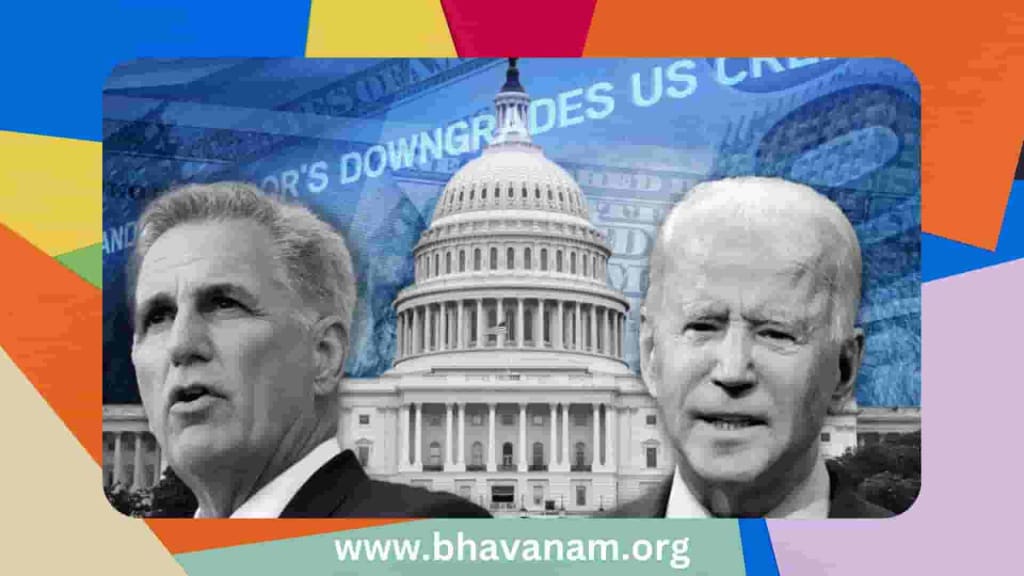Debt Ceiling Negotiations Intensify as Biden and McCarthy Seek Common Ground
In a high-stakes showdown, President Joe Biden and House Minority Leader Kevin McCarthy are locked in intense negotiations to reach a consensus on raising the United States debt ceiling.

In a high-stakes showdown, President Joe Biden and House Minority Leader Kevin McCarthy are locked in intense negotiations to reach a consensus on raising the United States debt ceiling.
As the clock ticks closer to a potentially catastrophic default, the two political heavyweights strive to bridge the wide gap between their respective positions on spending, taxes, and other critical measures.
Business professionals worldwide closely monitor these developments, which have significant implications for the U.S. economy and global financial markets.
The Great Divide
A Clash of Visions The debt ceiling bill passed by Republicans in the House and President Biden's 2024 budget stand in stark contrast, reflecting deeply entrenched differences in fiscal priorities.
Republicans advocate for tighter spending controls, reduced taxation, and an emphasis on limiting the size and scope of government.
Conversely, Biden's budget proposes increased social spending, infrastructure investment, and targeted tax hikes on the wealthiest Americans to fund these ambitious initiatives.
Finding common ground amidst such divergent approaches remains a monumental challenge.
The Urgency of Raising the Debt Ceiling
Both President Biden and Minority Leader McCarthy have emphasized the pressing need to raise the debt ceiling promptly.
Currently set at $31.4 trillion, the debt ceiling represents the maximum amount of money the U.S. government can borrow to meet its financial obligations.
Failure to raise the debt ceiling would result in a default on government debt payments, which could trigger severe economic repercussions, including skyrocketing interest rates, a plunging dollar, and disruptions to global financial markets.
Negotiations in Overdrive
Following their agreement to engage in direct talks, Biden and McCarthy have intensified their efforts to strike a deal swiftly.
Their determination to find common ground signals a glimmer of hope for a resolution.
As they engage in backroom discussions, aides and policy experts on both sides, work diligently to draft compromise proposals that bridge the gaps in spending, taxes, and other critical measures.
The Impact on the Economy
The protracted debt ceiling negotiations have already generated waves of uncertainty. Business investment decisions are being delayed, consumer confidence is waning, and the financial markets remain on edge.
Failure to raise the debt ceiling would have far-reaching consequences, potentially leading to reduced government spending, government employee furloughs, delayed benefit payments, and even a downgraded credit rating for the United States.
The resulting shockwaves would undoubtedly ripple across the global economy.
A Glimmer of Optimism
Despite the formidable challenges, there is growing optimism among investors and financial analysts.
The U.S. dollar has firmed against major currencies, reflecting market confidence that a debt ceiling agreement will be reached.
This optimism, however, should be tempered with caution, as the negotiation process remains complex, and the stakes are incredibly high.
5 Crucial Facts about the Debt Ceiling Negotiations
Debt Ceiling Definition
The debt ceiling represents the maximum amount of money the U.S. government can borrow to meet its financial obligations. Currently set at $31.4 trillion, failure to raise the debt ceiling would have dire consequences.
High Stakes
The debt ceiling negotiations between President Biden and Minority Leader McCarthy are of utmost importance, as failure to reach an agreement could lead to a default on government debt payments, causing significant economic turmoil.
Clash of Visions
Republicans and Democrats are at odds over critical issues such as spending, taxes, and the role of government. Finding common ground amidst these differences remains a monumental challenge.
Economic Implications
The protracted negotiations have already introduced uncertainty into the economy, impacting business decisions, consumer confidence, and financial markets. A failure to raise the debt ceiling would have severe consequences for the U.S. and global economies.
Optimism Amidst Challenges
While there is growing market optimism that a deal will be struck, caution is warranted. The negotiation process is complex, and the high stakes require careful navigation and compromise.





Comments
There are no comments for this story
Be the first to respond and start the conversation.